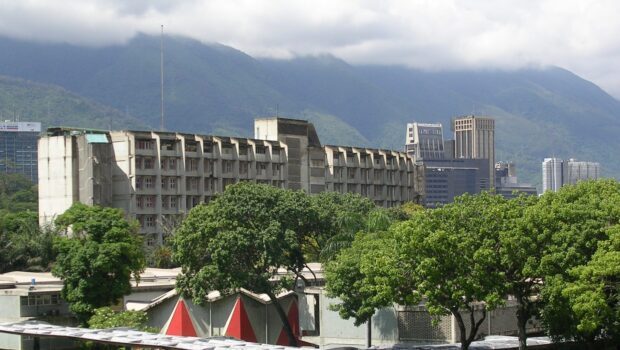Do the Humanities Humanize?
¿Las humanidades, humanizan?
George Steiner
• George Steiner ́s conference took place at the Nexus Intituut. Special thanks to Rob Riemen, its director.
***
The exponential–there is no other word–explosion of science and technology has transformed not only our universities but, after Descartes and Leibniz, the very status of knowledge and of truth. The exact and applied sciences with an inbuilt axiomal progress, isn’t it fantastic? We will know something tomorrow which we did not know today. Even a mediocre science team will know something next Monday they did not know today. The escalator of science is always moving upward. They have created new universities within the university. Their budget is a hundred-fold that of the humanities.
In a ranking of American Ivy League universities, the cost of controlling the temperature of the high-energy laboratory is now greater than the cost of the entire university budget ten years ago. In ten short years. In science faculties, salaries –and prestige– are far in excess of those current in non-scientific departments.
Biogenetics seeks access to the mechanism of life itself. Advances in medicine are virtually inconmesurable and yet (that little French word, “mais”, or the German word, “aber”) our wars are as barbaric as ever, famine and enslavement, forced migration abound, forty million children are now near the hunger line: forty million children. Economics neither forsaw nor is helping us in the present crisis of late capitalism. The mental stress, the sadness in the psyche, the criminality which characterize so much of our urban and familial existence. The hysterical flight into narcotics and hypnosis of the mass media have proved resistant to scientific triumphs and their credo of enlightened rationality. In the greatest age science has ever known, there is more misery on our streets, there is more mental collapse than ever before.
There is a stubborn enigma here. A partial answer may lie in the gap of understanding which now separates scientific knowledge and methods from the general and public grasp. Not only, as Galileo proclaimed, does Nature speak mathematics, but the evolution of that language has excluded common-sense comprehension. You and I still speak of sunset and sunrise in a Ptolemaic use of language centuries after Copernicus and Newton –it’s of course total nonsense, but we still use it continually. We dwell amid archaic fictions of solid objects. This table, we are told, is a vortex of electrons in quantum motion. But the causes may lie deeper. Science has, since Euclid, prided itself on its ideological and political abstentions, on its neutrality in respect of social and political conflicts. It has cultivated what Kant calls, wonderfully, “dis-interestedness”. Noli me tangere, I’m doing science. Don’t interfere with social and political concerns. Noli me tangere.
Its involvement in warfare or Stalinist madness have been contentious and self-destructive. Heidegger, God help us, put it with majestic insolence. I quote: “Science does not think.” Die Wissenschaft denk nicht. You had to be Heidegger to be able to say that. It is a very deep piece of idiocy. It’s a piece of idiocy, but it is very deep. This is one of the hardest things to handle: deep idiocies.
Do the humanities think? The proud phrase literae humaniores: the humane letters. Menschlichkeit. L’Humanité. Humanitas. Their condition (forgive me, and I don’t want to cause any offense), but their condition is not resplendent. A fair number of undergraduates in self-entitled universities, which are actually vocational or trade schools promoted to a fake rank, verge on sub-literacy.
What is worse? In singular instances, writers, musicians, artists and academics sided more or less overtly, or by indifference, with the agencies of the inhuman. Goethe’s garden is a few thousand yards from Buchenwald. Heidegger lectured on Hölderlin Sartre regarded occupied Paris, I quote, “as a perfect pro-literary and philosophic production.” In short, when we invoke the ideals and practices of the humanities there is no assurance that they humanize! My sense of the question simply torments me, I use the great phrase of the American poet, Wallace Stevens, “supreme fictions”: supreme fictions may enable us to forget the cry in the street. I come from a seminar in the afternoon, having taught, let’s say, the third and fourth acts of Lear. I am completely enveloped in the tortures of Cornelia and the cry of Lear: “Never, never, never, never, never.” And somebody is screaming in the street, “Help me!” and I don’t hear it. In some mysterious sense, I don’t hear it. This haunts me.
A second major factor may relate to the democratization of higher education. To the accelerating extension of university entry to virtually every order in society. Yes, human potentialities are indeed widespread. Yes, they are far too often suffocated by economic injustice and discrimination. Ladies and gentlemen, the faculties of the human mind, its potentialities, are not infinitely elastic. Talent, let alone genius in the arts, is enigmatically rare and unpredictable. The number of women and of men, of men and of women, qualified to respond to a chorus in Aeschylus, to a categorical proof in Kant, to a Duino elegy in Rilke, may be larger than hierarchical reactionary ideologies assume. It is not, however, limitlessly large. The sciences have no hypocrisy about this. We do! We humanists lie to ourselves continually! The sciences say, “Sorry, you can’t do an equation of the fifth degree. Sorry, goodbye! Become a banker.” You don’t survive a first-rate science course of the first year if you don’t know how to do the damn things. They don’t bluff, they can’t bluff. They are not going to lose their time with bluffing. The sciences rapidly weed out the inept; those two elliptic functions or string theory are simply inaccessible. There is no egalitarian contract, no democratic agreement with transfinite numbers, believe me.
Today the humanities flinch from any rigor in recruitment; from any acknowledgment that the enrollments in many spheres of social and literary studies are bloated and vulgarized to a destructive measure. It has become almost impossible to get rid of students totally unqualified to take your class. It has become almost impossible, administratively, politically, ideologically. Our science colleagues have no such problems. They know what they are doing, and they say, “Sorry.” This is becoming truer and truer as the sciences become more and more complexly mathematical.
There may, in a final analysis, be a structural element in our crisis. We noted the theoological origins of our Western universities and that the emancipation from theology has left a kind of emptiness, a disabling void. Cardinal moves in academic teaching and research were grounded in theological assumptions of an authority –Auctoritas, that beautiful word–of textual precedent and reference of tradition. Inevitably, the secular disciplines transferred, developed techniques of understanding, communication and formal presentment inherited from what are understandably still schools of divinity. But a substantive legitimation, the underwriting–that’s a very powerful word, to under-write something, to reinsure–the underwriting on which these axiomatic reflexes were founded, are now like reproachful ghosts. They can no longer provide reassurance. In the beginning was the word, the logos. From it, evolved humanistic literacy. When that word is no longer audible, the ontological foundations of philosophic, literary and historical studies are broken.
What then, shall we do? Some reforms are not difficult to envisage. We must purge our vocabulary, we must clean up our language to say what we mean. What is a true university? Why, it is libraries; it is a custodian and engagement with the living past. It strives to advance knowledge and clarify critically the processes of sort. A true university serves neither political purpose nor social programs, necessarily partisan and transitory. Above all, it rebukes censorship and correctness of any kind. What have we done through political correctness? The lies we are teaching or having to accept, the questions we are not allowed to ask. Political correctness makes impossible great fields of comparative study. A university should house and it should honor anarchic provocation and the passion of uselessness. What is the most wonderful passion in the world? Uselessness. If someone comes to me and says, “I am going to give my life to the study of Tang Dynasty Bronzers,” I say, “You are a very lucky person. You are going to be a very happy and hungry person, but you lead a blessed life.” The notion that the useless is the highest form of human activity.
First and foremost, we must insist on recapturing some of the ground the humanities have yielded to the sciences. Is a twenty-first century educated man or woman literate when, in total ignorance of elementary mathematics or the concept of numeracy, which organize and determine the world around us, she or he cannot grasp such a notion as a mean average, an irrational number? Notions instrumental to our socioeconomic existence, indispensible to current debates on genetic modification, euthanasia and law. The frequent assignment to the least gifted, to the most disillusioned of the teaching of mathematics in our schools is a suicidal scandal. How does it go in the university of Newton? If you get a first in mathematics, you can go on to research. If you get a good second, you will end up in hedge funds and banking, which are very sophisticated in their mathematics. If you are a third, the worst, you will go teach mathematics!
It is never too late. A core curriculum should, I am persuaded, contain–and now I hope you will bear with me, this is my one very practical reform–at the center of our curriculum should be architecture. Why? It draws on Mathematics (very richly, of course), Geology (what I call in English the material sciences: steel, iron, wood, it draws on environmental politics at every level). It embodies ancestry and futurity. In architecture, the notorious gap between the two cultures is wholly abolished. Archimedes joins Michelangelo. Together they teach us, and the technical phrase is so beautiful, “how to read a building.” There is no aspect of law, sociology, environmental economics, but also urban politics, which architecture does not involve in our daily lives.
How to read a building, how to read? Which is the center of my remarks this morning. We are learning to read together. No secondary texts, please. No criticism. No comments on comments on comments. Complete loss of truth. You learn to read together. And what do you do at the end? And this is the end of my too-long remarks this morning. The closing or, rather, opening motion is that of memorization. We learn by heart, par cœur. Not by brain. We learn by heart. The poem or piece of relevant prose, to memorize is to thank for what the text has given us. It is the only effective way of saying merci, thank you, danke. For the inexhaustible liberality of meaning, for the miracle of sense, what we know by heart cannot be taken from us.
• Este texto es una conferencia de George Steiner realizada en el Ne- xus Institute en 2013 y editada para la ocasión. Nuestro especial agradecimiento al director de dicho instituto, Rob Riemen.
***
Traducido por David Medina Portillo
El estallido exponencial –no hay otra palabra– de la ciencia y la tecnología ha transformado no sólo nuestras universidades sino, después de Descartes y Leibniz, el estado del conocimiento y la verdad. ¿No es fantástico e indiscutible este progreso innato en las ciencias exactas y aplicadas? Mañana sabremos algo que no conocemos en la actualidad. Incluso, un equipo de ciencia mediocre sabrá el próximo lunes algo que hoy desconoce.
La escalera mecánica de las ciencias siempre está en movimiento ascendente. Ellas han creado nuevas universidades dentro de la universidad y su presupuesto es cien veces mayor que el de las humanidades. En el tabulador de la Ivy League Universities norteamericana, por ejemplo, los costos por controlar la temperatura del laboratorio de alta energía son hoy mayores que el presupuesto de toda la universidad hace diez años. En las facultades de ciencias los salarios –y el prestigio– son muy superiores a los de los actuales departamentos no científicos.
La biogenética busca tener acceso a los mecanismos de la vida y los avances en la medicina son prácticamente inconmensurables, pero (esta pequeña palabra francesa mais o la alemana aber) nuestras guerras son tan bárbaras como siempre; perdura el hambre y la esclavitud y las migraciones forzadas abundan. Cuarenta millones de niños están hoy la franja de la hambruna: cuarenta millones de niños… La economía ni prevé ni está ayudando en la actual crisis del capitalismo tardío. El estrés, la tristeza y la criminalidad caracterizan gran parte de nuestra existencia urbana y familiar. La histérica angustia –narcótica e hipnótica– de los medios de comunicación se ha mostrado resistente a los triunfos científicos y al credo de la racionalidad ilustrada. En la mayor era de la ciencia, existe más miseria en nuestras calles y un colapso mental como nunca antes.
He ahí un obstinado enigma. La explicación parcial podría estar en la brecha del entendimiento que separa hoy al conocimiento científico de los métodos de comprensión pública y global. No es sólo que la Naturaleza habla en números, como decía Galileo, sino que la evolución de este lenguaje ha excluido a la comprensión del sentido común. Ustedes y yo todavía hablamos de la puesta del sol y el amanecer en un uso ptolomeico del idioma siglos después de Copérnico y de Newton. Moramos en medio de ficciones arcaicas sobre objetos sólidos. Esta tabla, se nos dice, es un vórtice de electrones en movimiento cuántico. Aunque las causas pueden ser más profundas. Desde Euclides, la ciencia se enorgullece de sus abstenciones ideológicas y políticas, de su neutralidad respecto de los conflictos sociales y políticos. Se ha cultivado lo que Kant llamaba, maravillosamente, desinterés. Noli me tangere… que estoy haciendo ciencia; no interfiera con preocupaciones sociales y políticas. Noli me tangere. No obstante, la participación de la ciencia en la guerra o la locura estalinista ha sido muy polémica y autodestructiva. Heidegger –y que Dios nos ayude– lo expresó con majestuosa insolencia. Cito: “La ciencia no piensa”. Die Wissenschaft denkt nicht. Había que ser Heidegger para decir esto. Un pedazo (muy profundo) de idiotez. Aunque una de las cosas más difíciles de manejar son las idioteces profundas.
¿Las humanidades piensan? Literae humaniores –Menschlichkeit, l’humanité, humanitas–: “las letras humanas” es un título orgulloso, pero su condición (no quiero provocar ninguna ofensa) no es lúcida. Un número considerable de estudiantes de pregrado en las autodenominadas universidades –en realidad, vocacionales o escuelas de comercio ascendidas a un rango falso– raya en la sub-alfabetización.
¿Qué es lo peor? Que salvo casos excepcionales, esto sucede con la indiferencia más o menos abierta hacia los agentes de lo inhumano por parte de escritores, músicos, artistas y académicos. El jardín de Goethe se encuentra a unos cuantos miles de metros de Buchenwald. Heidegger disertaba sobre Hölderlin. Sartre estimaba al París ocupado –y cito– “como una producción literaria y filosófica perfecta”. En resumen, cuando invocamos los ideales y las prácticas de las humanidades no hay ninguna garantía de que humanizan. Mi impresión al respecto simplemente me atormenta. Las “ficciones supremas”, frase del poeta estadounidense Wallace Stevens, pueden permitirnos olvidar el grito en la calle. Si vengo de un seminario en la tarde, tras haber enseñado, digamos, el tercer y cuarto actos de El rey Lear, me encuentro envuelto en las torturas de Cornelia y el grito de Lear: “Never, never, never…!” De modo que si en la calle alguien pide auxilio no lo escucho; en algún sentido misterioso, no lo oigo. Esto me atormenta.
Otro factor importante está relacionado quizá con la democratización de la educación superior, con el acelerado acceso a la universidad de prácticamente todos los órdenes de la sociedad. Las potencialidades humanas son, en efecto, generalizadas. Y sí, frecuentemente, dichas potencialidades se ven sofocadas por la injusticia económica y la discriminación. Señoras y señores: las facultades de la mente humana no son infinitamente elásticas. El talento, y con más razón el genio en las artes, es enigmáticamente raro e impredecible. El número de mujeres y de hombres calificados para responder a un coro de Esquilo, a una prueba categórica de Kant, a una elegía de Duino de Rilke, puede ser mayor que el que las jerárquicas ideologías reaccionarias asumen. Sin embargo, no es ilimitado. Las ciencias no muestran ninguna hipocresía al respecto. Nosotros lo hacemos. Nosotros los humanistas nos mentimos continuamente. Las ciencias dicen: “Lo sentimos… Usted no sabe realizar una ecuación de quinto grado, ¡adiós! Hágase banquero”. Nadie sobrevivirá a un curso de ciencia de primer año si no sabe cómo hacer estas cosas. Las ciencias no pueden ser irresponsables y no van a perder su tiempo. Eliminan rápidamente a los ineptos. En este terreno, las funciones elípticas o la teoría de cuerdas son sencillamente inaccesibles y no existe un contrato igualitario, un acuerdo democrático con los números transfinitos.
Hoy en día las humanidades se intimidan ante cualquier rigor en su plantilla, ante el reconocimiento de que las matrículas en muchas esferas de las ciencias sociales y literarias están hinchadas y trivializadas en un grado destructivo. Se ha vuelto casi imposible –administrativa, política e ideológicamente– desembarazarse de los estudiantes incompetentes. En cambio, nuestros colegas de las ciencias desconocen estos problemas: saben lo que hacen y pueden decir “no”. Y ello es cada vez más cierto a medida que las ciencias se tornan matemáticamente complejas.
Es posible que, en un análisis cabal, se trate de un elemento estructural de nuestra crisis. Somos conscientes de los orígenes teológicos de nuestras universidades occidentales y de que nuestra emancipación de la teología ha dejado una suerte de desolación, un vacío incapacitante. Un cardenal se mueve en la enseñanza académica y su investigación se basa, por su parte, en los presupuestos teológicos de una autoridad –auctoritas qué bella palabra– con precedentes textuales y en referencia a la tradición. Inevitablemente, las disciplinas seculares se trasfirieron, desarrollaron técnicas de comprensión, comunicación y exposición formal heredada de lo que, comprensiblemente, aún son las escuelas de la divinidad. Pero una legitimación sustantiva, suscribir –qué palabra tan fuerte, sub-escribir–, respaldar algo, la suscripción en la que se fundaron estas reflexiones axiomáticas son ahora una suerte de fantasmal reproche. Ya no pueden brindar respaldo alguno. En el principio era la palabra, el logos; a partir de ella se desarrolló la educación humanista. Si tal palabra ya no es audible los fundamentos ontológicos de los estudios filosóficos, literarios e históricos, se han roto.
¿Qué haremos entonces? No es difícil prever ciertas reformas. En principio, purgar nuestro vocabulario, sanear nuestro lenguaje para decir lo que queremos decir. ¿Qué es una verdadera universidad? Entre otras cosas, una biblioteca, un custodio y un compromiso con el pasado vivo; un esfuerzo por avanzar en el conocimiento y aclarar críticamente los procesos de ordenación. Una verdadera universidad no sirve a propósitos políticos ni a programas sociales, necesariamente partidistas y transitorios. Sobre todo, rechaza la censura y la corrección de cualquier tipo; rechaza lo que hemos hecho mediante la corrección política, las mentiras que estamos enseñando o hemos tenido que aceptar, las preguntas a las que no estamos autorizados. La corrección política torna imposibles grandes campos de estudio comparativo. Una universidad debe albergar y honrar la provocación anárquica y la pasión de lo inútil. ¿Cuál es la más extraordinaria pasión en el mundo? La inutilidad. Si alguien viene a decirme que va a dedicar su vida al estudio de los bronces de la dinastía Tang, respondo: “Es usted afortunado. Será una persona muy feliz y hambrienta pero tendrá una vida bendecida”. Tal es la noción de que lo inútil es la forma más elevada de la actividad humana.
Debemos recuperar parte del terreno que las humanidades han cedido a la ciencia. ¿Se es un hombre educado o una mujer culta cuando, en total desconocimiento de las matemáticas elementales y del concepto de aritmética que organizan y determinar el mundo que nos rodea, no alcanzamos a comprender conceptos como “promedio” o “número irracional”, fundamentales ambos en nuestra existencia socioeconómica e indispensables en los debates sobre la modificación genética, la eutanasia y el derecho? Es un escándalo suicida la frecuente asignación de la enseñanza de las matemáticas en las escuelas a los menos dotados. ¿Cómo era la universidad de Newton? Si usted recibe un primer lugar en matemáticas, puede acceder a la investigación. Si obtiene un buen segundo lugar, su destino estará en las aseguradoras y los bancos, muy sofisticados en matemáticas. Pero si usted logra un tercer lugar –el peor de los casos–: ¡irá a enseñar matemáticas! ¿Se dan cuenta de la locura de un sistema de este tipo?
Pero nunca es demasiado tarde. Un plan de estudios básico –y espero que me tengan paciencia, esta es mi muy práctica reforma–, debería contener en su núcleo a la arquitectura. ¿Las razones? Porque ella se sustenta en las matemáticas y en lo que llamo the material sciences, es decir y por jemplo, en una geología sustentada a su vez en una política del medio ambiente en todos sus niveles. La arquitectura encarna lo ancestral y lo futuro y en ella la brecha entre las dos culturas está totalmente abolida. Arquímedes se une a Miguel Ángel y juntos nos enseñan. La ficha técnica podría ser muy hermosa: “Cómo leer un edificio”. No hay aspecto del derecho, la sociología, la economía ambiental ni de la política urbana que la arquitectura no enlace con nuestra vida cotidiana.
Cómo leer un edificio. Cómo leer. Aprendemos a leer juntos. Textos secundarios no, por favor. Nada de crítica. Ningún comentario sobre comentario. Complete loss of truth, se aprende a leer juntos. ¿Y qué hacer al cabo? La meta o, más bien, la apertura propuesta es la memorización. Aprendemos por el corazón, par cœur, no por el cerebro. Por el corazón aprendemos el poema o una pieza de prosa relevante. Memorizar es dar las gracias por lo que el texto nos ha dado. Esta es la única manera de decir gracias por la inagotable generosidad de sentidos, por el milagro del sentido. Y lo que sabemos de corazón ya no puede ser apartado de nosotros.










